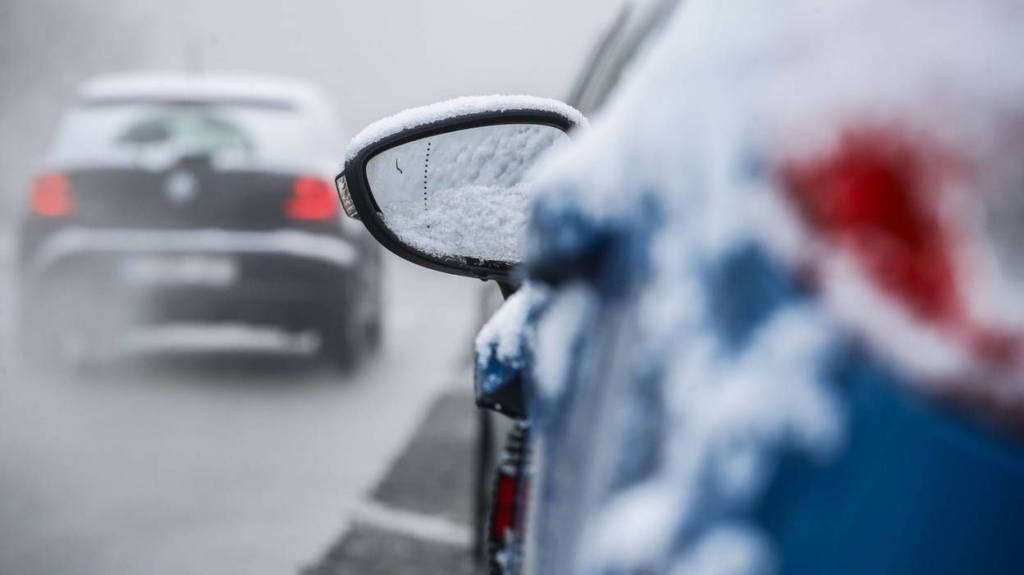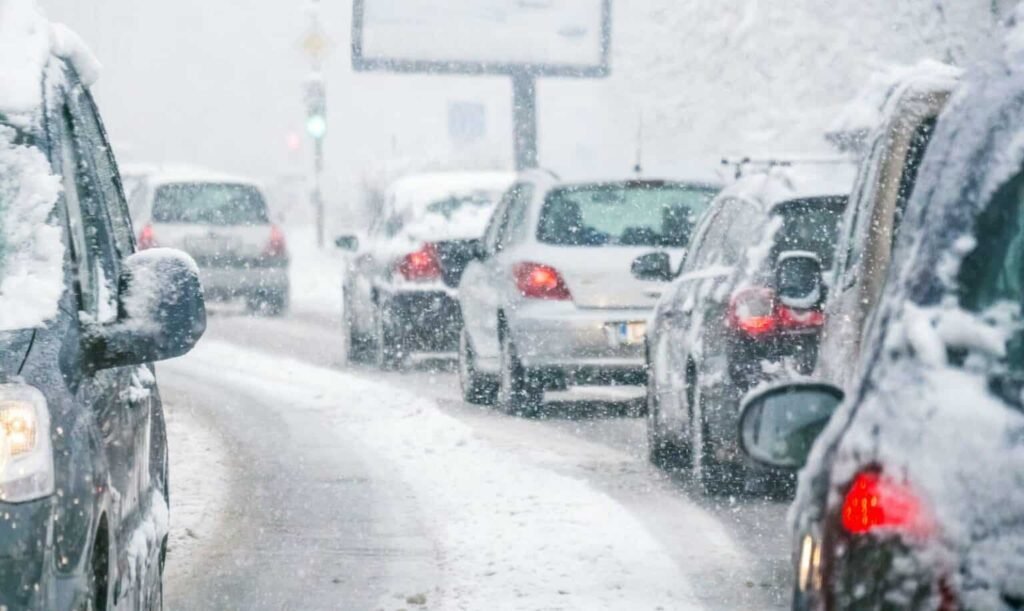The weather is taking a wintry turn, and snow is forecast to fall across the UK next week. This news has sparked excitement and concern alike as people prepare for the arrival of cold temperatures, frosty mornings, and potentially treacherous conditions. From commuters wondering how this will affect travel plans to families excited about the possibility of building snowmen, the prospect of snow raises various questions and anticipation. Let’s delve into what this weather forecast means, how it might impact different aspects of life, and how you can prepare effectively.
The Science Behind Snowfall in the UK
Snowfall in the UK is influenced by a combination of factors, including temperature, moisture, and atmospheric pressure. For snow to occur, the temperature near the surface needs to be at or below freezing, with sufficient moisture in the air to form snowflakes. Cold air masses from the Arctic or Siberia often bring these ideal conditions to the UK.
Meteorologists use advanced weather models to predict snow, analyzing data on pressure systems, jet streams, and temperatures. When a low-pressure system combines with cold air, it creates the conditions for snow. Next week’s forecast suggests a similar pattern, with Arctic winds sweeping across the UK, lowering temperatures significantly.
Regions Likely to Be Affected
While snow is forecast to fall across the UK, its intensity and coverage will vary by region. Scotland and northern England are expected to see the heaviest snowfall, particularly in higher altitudes like the Scottish Highlands and the Pennines. Coastal areas may experience lighter snow showers due to slightly warmer temperatures.
The Midlands and southern England, including London, may witness lighter snow or sleet, depending on how low temperatures dip. Wales, especially mountainous regions like Snowdonia, is also likely to see a blanket of snow. Northern Ireland could experience sporadic snow showers, particularly inland.
Travel Disruptions and Commuter Concerns

One of the biggest concerns when snow is forecast to fall across the UK is its impact on travel. Snow and ice can make roads, railways, and airports difficult to navigate. The Met Office often issues weather warnings, ranging from yellow for mild disruptions to red for severe impacts, advising people to avoid unnecessary travel.
Motorists are urged to drive cautiously, as icy roads significantly increase the risk of accidents. Rail services may face delays or cancellations due to snow-covered tracks, and flights could be grounded if visibility is poor or runways become unsafe. Commuters should plan ahead, checking weather updates and travel advisories regularly.
The Impact on Daily Life
Snowfall often disrupts routines, especially for schools and workplaces. Schools may close if the conditions are deemed unsafe for students and staff to travel. Remote working options could see a spike as people avoid commuting in dangerous weather. Businesses dependent on transport, such as logistics and delivery services, may experience delays.
On the flip side, snow also brings opportunities for leisure and family bonding. Parks and open spaces transform into winter wonderlands, attracting families eager to enjoy sledging, snowball fights, and building snowmen. Social media platforms often flood with pictures and videos showcasing the snowy scenes.
Preparing for the Snow
Preparation is key when snow is forecast to fall across the UK. Ensuring your home and vehicle are ready for cold weather can minimize disruptions and keep you safe. Simple measures like insulating pipes, stocking up on essentials, and keeping a supply of grit or salt can go a long way.
For motorists, carrying an emergency kit in the car, including blankets, water, a flashlight, and a fully charged phone, is highly recommended. Ensuring your vehicle has sufficient antifreeze and winter tires improves safety on icy roads. Those relying on public transport should stay informed about schedule changes and delays.
The Role of the Met Office and Weather Warnings
The Met Office plays a crucial role in keeping the public informed during adverse weather conditions. Their color-coded warning system provides clear guidance on the expected severity of snow and ice. Yellow warnings indicate potential disruptions, while amber or red warnings signify more serious risks to safety and property.
These warnings are often accompanied by advice on travel, outdoor activities, and protecting vulnerable individuals. Staying updated through the Met Office website, app, or social media channels ensures you are prepared for changing weather conditions.
Snowfall Trends and Climate Change
The UK’s snowfall patterns have changed over the years, influenced by broader shifts in global climate. While cold snaps still occur, warmer winters have led to a decrease in the frequency and intensity of snowfall in some regions. Climate scientists attribute this trend to global warming, which alters atmospheric circulation and reduces the likelihood of prolonged cold spells.
Despite this, sudden snowfalls remain a feature of the UK’s unpredictable weather. Events like the “Beast from the East” in 2018, which brought heavy snow and freezing temperatures, demonstrate the country’s vulnerability to extreme weather.
Winter Activities to Enjoy During Snowfall
Snow days are an excellent opportunity to embrace the season and enjoy outdoor activities. Sledging down snowy hills is a favorite pastime, with families flocking to parks and countryside areas. Building snowmen, creating snow angels, or having snowball fights provide endless entertainment for children and adults alike.
Photographers and nature enthusiasts can capture stunning winter landscapes, from frost-covered trees to snow-laden rooftops. Hiking in snowy terrains offers a serene and picturesque experience, but it’s important to wear appropriate footwear and stay safe.
Wildlife and Snow
Snowfall significantly impacts wildlife, with many species adapting to survive the harsh conditions. Birds often struggle to find food, making bird feeders a valuable lifeline. Filling feeders with seeds, nuts, and suet balls helps local bird populations and provides an opportunity for birdwatching.
Animals like foxes and deer must travel farther to find food, while hibernating species like hedgehogs remain dormant. Observing wildlife in snowy settings can be a rewarding experience, but maintaining a respectful distance is essential.
The Economic Impact of Snowfall
While snow brings joy to many, it also has economic implications. Retailers often see increased sales of winter essentials like heaters, salt, and winter clothing. Supermarkets may experience a surge in demand for groceries as people stock up ahead of snowstorms.
However, the disruptions caused by snow can negatively impact industries such as construction, transport, and hospitality. Flights, train services, and deliveries may face delays, while outdoor events and activities are often canceled. Balancing these economic impacts requires effective planning and communication.
The Role of Social Media in Snow Events
Social media plays a significant role in sharing information and experiences during snow events. Platforms like Twitter and Facebook are flooded with updates from weather forecasters, local authorities, and transport services. Hashtags like #UKSnow or #SnowDay allow users to track the snowfall and share their pictures and videos.
Live updates and community engagement make social media an invaluable tool for staying informed and connected. It also serves as a platform for creative expression, with users showcasing snow sculptures, winter photography, and humorous takes on the snowy chaos.
Looking Ahead
With snow forecast to fall across the UK next week, preparation and anticipation are in full swing. Whether you view it as a magical winter treat or a logistical challenge, snow is an integral part of the British weather experience. Staying informed through trusted sources, taking safety precautions, and embracing the beauty of the season will ensure you make the most of this wintry spell.
As the snowflakes begin to fall, the UK will once again transform into a picturesque winter wonderland, reminding us of nature’s power and beauty. Whether you’re braving the elements or enjoying the view from the warmth of your home, the arrival of snow is always a memorable event.
FAQs
Where is snow expected to fall in the UK next week?
Snow is forecast primarily in northern regions, especially over higher ground in Scotland and northern England. There may also be wintry showers in parts of Wales and the Midlands. Urban areas are less likely to see significant accumulation, but rural and upland regions could experience heavier snowfall.
When will the snow start?
The snow is expected to begin early next week, likely around Tuesday or Wednesday (December 5–6), as colder air sweeps in from the north. Frost and icy conditions may precede the snowfall, particularly in Scotland.
How cold will it get?
Temperatures are set to plummet to as low as -7°C in rural parts of Scotland, with other regions experiencing lows near freezing. Daytime temperatures will hover in the mid-single digits, making it feel much colder due to brisk winds.
Are there any severe weather warnings?
The Met Office has issued warnings for frost and icy conditions in Scotland and northern England. Travelers should check for updates on weather warnings, as they are subject to change based on evolving forecasts.
Will the snow disrupt travel?
Yes, travel disruptions are possible, especially in areas with heavy snowfall or icy roads. Rail and road networks in affected regions might experience delays. Commuters are advised to check local travel advisories and plan for longer journeys.
What should I do to prepare for the cold weather?
Ensure your home is insulated against the cold.
Keep emergency supplies, such as blankets, a torch, and non-perishable food, especially if you live in rural areas.
Check your vehicle’s antifreeze and battery if you plan to drive.
Stay updated on weather forecasts to avoid unnecessary travel.
Are schools and businesses likely to close?
Local councils will determine closures based on the severity of conditions. Historically, schools and businesses in snow-prone areas may close temporarily, but widespread shutdowns are unlikely unless the snowfall is particularly severe.
How long will the cold spell last?
The cold weather is expected to last through mid-December, with fluctuations in temperature. A brief milder period may occur later in the month, but intermittent frost and wintry conditions will persist in some areas.
Can we expect a white Christmas?
While long-range forecasts are less reliable, the current conditions hint at the possibility of colder weather persisting into late December. However, a definitive prediction about a white Christmas remains uncertain.
Where can I get the latest weather updates?
For accurate and up-to-date information, check:
Met Office for official forecasts and weather warnings.
BBC Weather for regional updates.
Local news outlets like The Independent for ongoing coverage.
To read more; Click here
